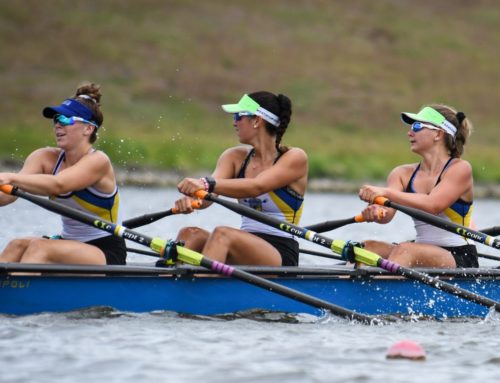Seven Things Every Rowing Recruit Should Know
It may sound silly, but the key to being recruited in any sport is being “recruitable.” That’s especially true in rowing, where earning a spot on the team, and keeping that spot, requires plenty of hard work and extra effort. So, if you want to earn a scholarship to row in college, make sure you know what makes you more recruitable:
1) Know How You’ll Fit In
Every rowing coach wants a recruit who will work hard and is aiming high. But the key to having high aspirations is also having an honest assessment of your skills and talents. Knowing a team’s culture and how, and where, you might fit on the depth chart can go a long way toward helping you choose the program that fits you best. And finding a program that fits you – and one where you can fit in – can go a long way toward determining your success as a rower.
2) Know How To Work
Knowing how you’ll fit on the team in college is one thing. But knowing how much work you’ll have to put in to keep your place on a college team is something all coaches look for. You’ve done plenty of hard work on your rowing team in school or at the club level. Are ready, physically and emotionally, for the effort required to significantly increase in college? Further, are you equipped, physically and emotionally, to compete at the level you’re striving for? If not, know that you’ll have to work even harder and that may affect you athletically and academically.
3) Know What You Want
Outside of a scholarship opportunity to row in college, know what you want from your college experience. Know your preferred area of study. Know what you want from a campus experience? Big campus or small school environment? What kind of academic versus athletic balance do you want? Beyond your athletic skill, knowing what you want from a school, and being able to articulate that to coaches, can make you even more recruitable.
4) Know Your Options
Every rower dreams of a full-ride scholarship to row for a prominent Division I school. The reality, however, is that you’re more likely to be offered a partial scholarship, which may leave you and your family on the hook to repay loans for the rest of your college costs. Is the cachet of rowing at a big name school worth the cash you may pay for the opportunity for years after? Are you willing to take on student debt to row at a DI school when a DII school might offer a full scholarship package? That’s why it’s important to consider all your options when looking at schools and rowing programs. Know what every school can offer you, know how much you can for college, and know all your options to find the opportunity that’s right for you?
5) Know The Facts About The Schools You’re Considering
Perhaps the simplest way to make yourself recruitable is to do some background research on the schools you’re considering. Asking coaches the wrong questions, when you can easily find the answers on your own, is a sure fire way to make a coach quickly lose interest in you. Most rowing coaches lack the time and budget for a large recruiting effort. Making them take the time to do the work for you will show them you’re probably not worth their time as a recruit. Take the time and make the effort to show that you’re worth recruiting.
6) Know How To Communicate
If there’s a program you want to be a part of, reach out to that coach. Know the name of the coach or staff member you’re contacting and personalize your message to them. Tell them specifically why you want to attend their school and row in their program. Be able to honestly explain your reasoning for your interest in that school and why you’d fit with their program.
Conversely, be honest in your communications with coaches and respond promptly to every message you receive. Recruiting is a two-way street. If you’re not interested in a school, a polite reply to a coach will always garner more respect than no response at all. Treat your communication with coaches the way you’d want to be treated. Look at recruiting as an opportunity to build relationships. The college rowing community is a small one and, even if you don’t land a scholarship at the school of your dreams, the relationships you build – and the character your exhibit – during the recruiting process, can pay off for you down the road.
7) Know The Process
Once you know the six elements above, have an understanding of the recruiting process to help make your decision. Know how to make the most of official and unofficial visits. Know when and how coaches can communicate with you. Know what schools can offer you. Know what you want from a school put in the time to understand what it will take to achieve that goal. Have a Plan B and a Plan C.
The recruiting process is different for every athlete. But remember that the more you know as a recruit, may make you more recruitable as a rower.
If you enjoyed this article, “Seven Things Every Rowing Recruit Should Know”. Please check out some of our other recruiting articles HERE.



